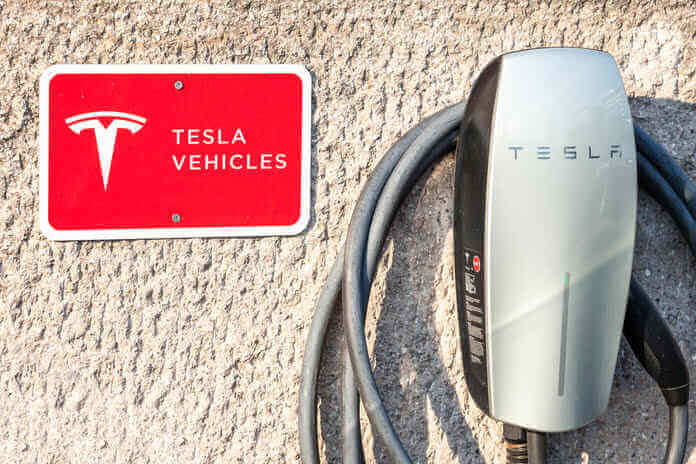Morgan Stanley predicts that Tesla stock (NASDAQ:TSLA) will continue to behave like a technology company stock listed on Hong Kong’s Hang Seng or the Shanghai Composite index until at least the year 2030. This prediction is based on the fact that a significant portion of Tesla’s revenues come from sales made in China.
The electric vehicle manufacturer’s analysts stated in a research note that was published on Monday that due to the fact that up to half of the company’s revenues come from China, the company is likely to find itself intimately connected to the price fluctuations of China’s technology companies.
According to the group of equity analysts led by Adam Jonas, “We believe Tesla earns as much as one-half of its profitability from the Chinese market, possibly making the company a derivative of a Chinese tech stock,”
This year, the Chinese economy has been held back by a number of factors, including Beijing’s zero-COVID policy of lockdowns and a crisis in the country’s housing market. The measurement of 3.9% year-on-year GDP growth for the third quarter released this week indicates that the economy is on course to fall well short of the Communist Party’s 5.5% objective for the year.
Tesla cut the prices of its Model 3 and Model Y electric vehicles in China by nine percent on Monday, as Chinese companies began to express concerns about the possibility of an economic slowdown.
Tesla Stock Price (NASDAQ:TSLA)
This might put more pressure on the Tesla stock price of the electric vehicle manufacturer, which increased by 2.7% to $216.95 just after the opening bell on Tuesday, but has dropped by more than 20% in the last month. As a result of “minor revisions” to Morgan Stanley’s earnings-based model, Jonas reduced his price estimate for Tesla shares from $350 to $330 per share. He explained this shift by citing the model.
Morgan Stanley believes that the price reduction that Tesla China has announced may damage the already negative attitude of the market.
The worries that investors have about China’s slowing economy have been a drag on the country’s technology companies, and the KraneShares CSI China Internet ETF, which tracks the sector, has fallen by 48 percent so far this year.
During the results call for the firm, Tesla (NASDAQ:TSLA) CEO Elon Musk mentioned that the economy in China has been slowing down.
He stated that China is going through anything resembling a recession.
According to Morgan Stanley, the fact that Tesla (NASDAQ:TSLA) is dependent on sales to China makes the company susceptible to the escalation of geopolitical tensions between Beijing and Washington.
This year, a worsening of ties between the United States and China has been a drag on vulnerable asset prices. Following the implementation of export limits by the Biden administration earlier in the month of October, Chinese semiconductor stock prices saw a dramatic decline. These regulations restrict the selling of chips manufactured in the United States to just those retailers who have been approved for an export license and have had it validated.
In the meantime, officials from the Chinese government have heaped praise on Musk for saying that Taiwan, a source of concern between the United States and China, should be elevated to the status of a special administrative zone similar to Hong Kong.
The team at Morgan Stanley believes that Tesla (NASDAQ:TSLA) will continue to rely heavily on its sales in China until at least the year 2030. This leaves it vulnerable in the event that tensions between the United States and China continue to rise.
According to the statement made by the bank, “The larger arc of Sino-US economic ties and the shifting geopolitical scenario will continue to add volatility to Tesla shares.”
Our projections through the year 2030 show a diminishing reliance on China, although this process will take some time.
Featured Image- Megapixl @ Chatdesbalkans















